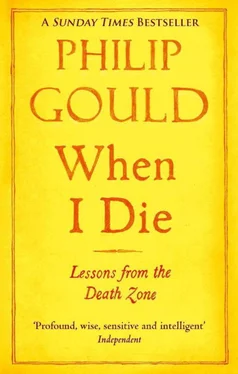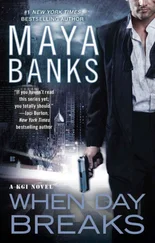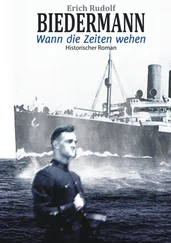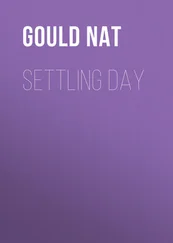Mum had to go out for a meeting so I spent a difficult couple of hours with him. His helmet kept leaking air, drooping round his face, making him claustrophobic. At the same time, without the extra pressure he was instantly short of breath. It just kept happening, and I watched the stress grow in his expression each time as his numbers dropped, try though he did to suppress it.
But he had a wonderful nurse who kept him calm, coaxed him through and eventually helped him rest. While he was sleeping she filled up the noticeboard, wanting to know his likes and dislikes. Earlier Dad had announced to the room, ‘The love you take is equal to the love you make,’ quoting the Beatles’ song ‘The End’ on Abbey Road . So she wrote that up as his motto of the day.
There was a constant stream of nurses who took care of Dad and they were all very different. I remember him writing that cancer had changed his view of leadership, that he had been sustained time and time again on his cancer journey by strength in extraordinary places. And not one nurse we met in that week failed to live up to this. They all worked long hours without ever showing a lapse in concentration. They were always ready with a smile, a word of comfort, and they made us feel totally at home. We met so many different people but everyone seemed somehow familiar. There seemed to be an army of people looking out for him. They were as worried about his needs as we were – whether he wanted his glasses on or off, how he was breathing. Eventually they even constructed a little straw so he could drink without losing air.
Overseeing it all was Dr Carr, the head of the intensive care unit, who never seemed to leave or sleep. He was the absolute best of the NHS, he gave the whole family so much reassurance and somehow he made what should have been the worst five days of our life bearable. I know Dad loved the camaraderie of the medical staff; he always took energy from other people and he felt comforted by the constant security. The night nurses in particular took him through the darkest hours, in both senses of the term.
That evening the doctors were concerned about Dad’s breathing, the strain it was causing, how much he was struggling. I could sense the evening nurse’s extra watchfulness and anxiety and it was decided to up the support he was getting from the helmet to 100 per cent. This was as much as they could do to help him, yet it was clear that he was not improving. There was still a vague hope that the situation would turn, but it was fading fast.
Grace came back after work and was very low. She says she remembers Dad looking at her.
‘What’s wrong, little Gracie?’
‘What do you think is wrong, Dad?’
Grace and I went to get some food for dinner and, in our exhaustion, started squabbling when it took ages to arrive. It was always worse when you left the hospital. The uncertainty left you feeling constantly on edge. Any beep of the phone filled you with total dread. Mum and Grace would answer the phone in the same rushed, urgent tone: ‘What’s happened?’ I knew I did the same thing. It was much calmer in the room, watching the machine, knowing what was happening.
Dad was exhausted and slept through most of the evening. Thursday had been a tougher day and we were starting to prepare again for bad news.
Mum later said there was a paradox to Dad in those final days. There is no doubt he had moments of fear and uncertainty. He was battling against death to the end. But fundamentally he accepted what was happening to him, faced up to what was coming with composure. Feeling empowered was essential to him. He had a tranquilliser that he hid in one of his books and this became his comfort blanket. It was always near him. By the end there was no way he could have taken it alone, but somehow it gave him protection from the forces ranged against him. It helped him stay calm.
Friday, 4 November
Friday morning Mum had gone in very early to catch Dr Carr on his rounds. He made it clear to her that it was definitely three to five days now and that the infection was not going to turn. I remember coming in just afterwards and Dad worrying if Mum had told me, but she did not have to say anything. I already knew he was deteriorating.
I had gone shopping to get him some lime cordial and ice and he was delighted. He kept saying it was the best thing he had ever tasted. After every sip of cold water he would close his eyes and smile with a look of total contentment.
Mum was in tears at lunch as she worried about the time after the ordeal ended. I told her we would get through it together, walk through the pain, have good days and bad. I remember holding her hand, feeling helpless, knowing there was no real comfort for any of us.
Adrian Steirn’s team came by with ten copies of the pictures they had taken of Dad standing defiantly on his grave. They wanted him to sign them. They asked tentatively if they could take pictures of him doing it. It was strange to see their evident shock and distress at how he looked. To me, it had become familiar.
He struggled to sign the pictures, getting me to test the pens, frustrated that his body would not respond to his wishes. He exhausted himself in the process. I could feel Mum worrying and thinking: even now he won’t stop. Dad was proudly telling all the staff that the picture was taken at Highgate Cemetery where his ashes would be scattered. The nurses looked utterly bemused by the whole thing.
Grace came in a bit later and his eyes lit up. Grace always had the capacity to make Dad laugh, to say something unexpected, to distract him. He tried to kiss her head, looking confused as he realised the bubble was in the way. We all laughed.
Grace and I went for the daily dinner run and he looked at us both as if for the last time, squeezing my hand with such love. He started: ‘I know I won’t be there for the big moments…’ We both instantly burst into tears. He knew how to get us, loved grand statements. He told us he would always be with us really. That he loved us so much. That this was our moment, that we were on the cusp, were ready to shine, to explode. He told us to believe in ourselves, that we were both stars. He said his mum on her deathbed had told him to look after his dad but that he did not need to tell us to look after Mum. He knew we would.
When we came back he was trying to type, struggling to lift his arms. We tried to prop him up with pillows but he would not let us help. He sat there for what seemed like hours but only got a few words down, telling me ‘I’m away with the typing, George.’ That was when I really broke down, hiding behind his bed, silently crying. I could not bear to see his body letting him down. Eventually he fell asleep in front of his computer.
I could see Mum was shattered but would never leave on her own, so I said I would take her home and that Grace would stay. Grace was delighted to have some time alone with Dad, and had hated having to go into work.
As we left, Dad was struggling with his phone. He could not type in the password and asked us to remove it. We tried but failed, accidently changing it in the process. We wrote out the new one for him in massive letters but he looked at us with disdain. The drugs were starting to have a big effect and he was getting a bit confused, but every time he felt we were even remotely patronising he would cut us down to size very quickly. He had lost a bit of clarity, but his mind was so strong and he was always very much present.
I remember that night knowing things were getting worse, feeling that a deep sadness had opened like an abyss in my chest and would never close. But I also felt a profound sense of joy and warmth as I ran over every tiny memory from that day, basking in each.
Saturday, 5 November
We all go in very early. Dad asks how many days he has left, counting them down. He thinks the worst-case scenario is three. We break it to him that three was yesterday, now it is only two. We can see his disappointment and frustration as he realises it is one less than he thought. He wants more time.
Читать дальше












